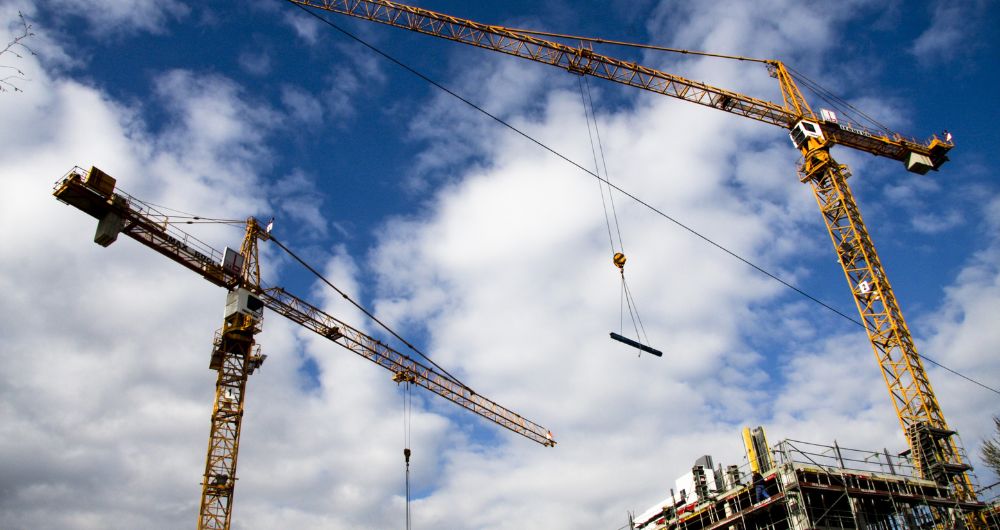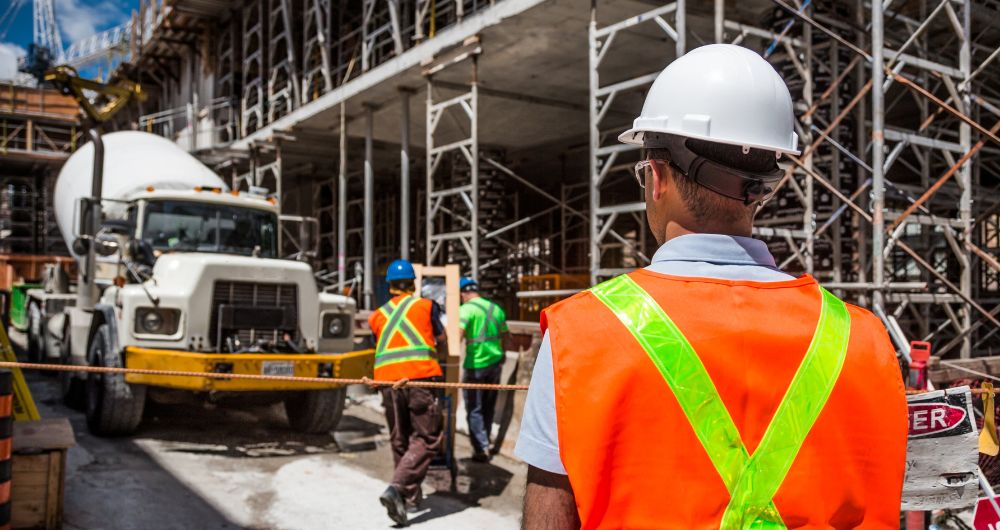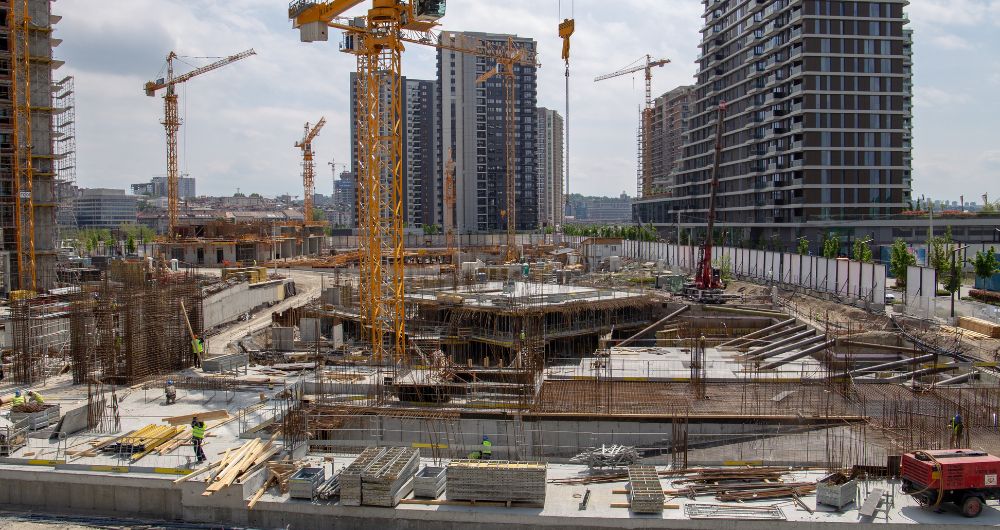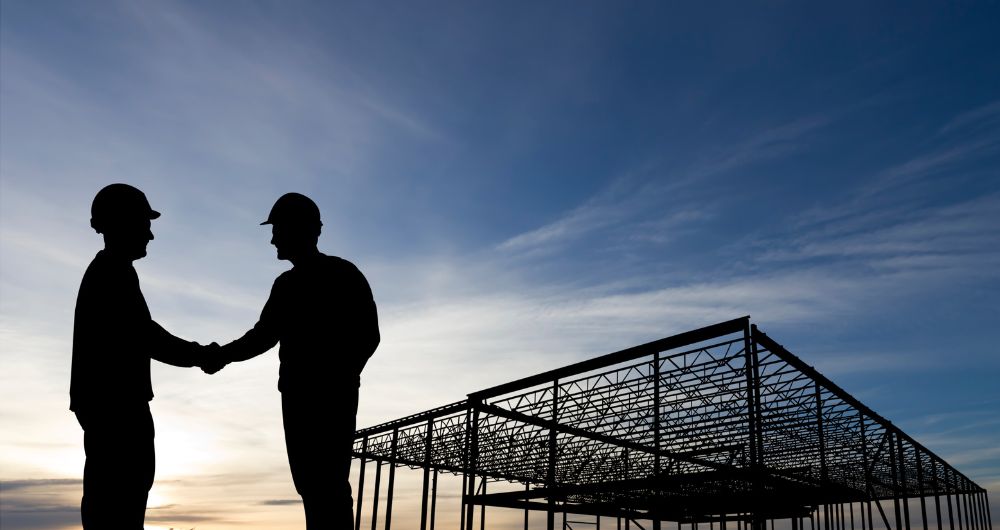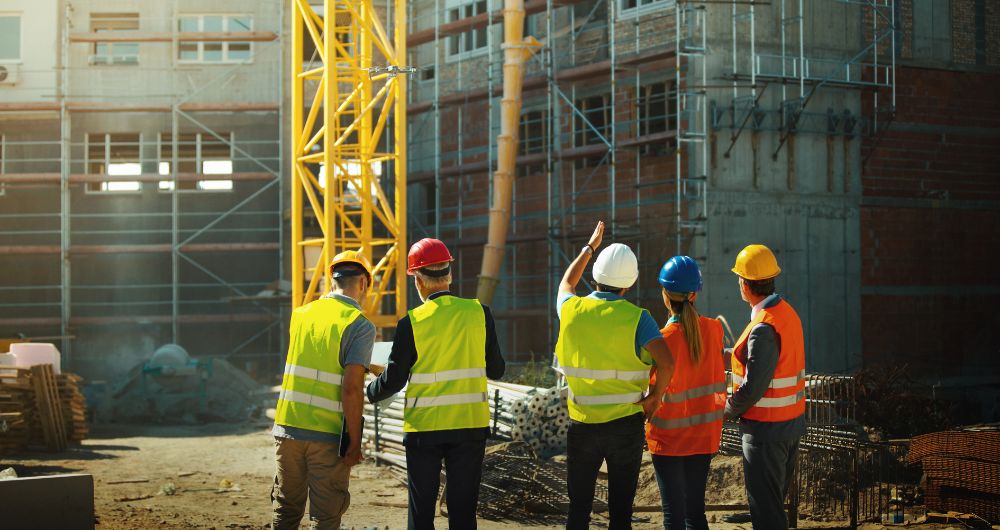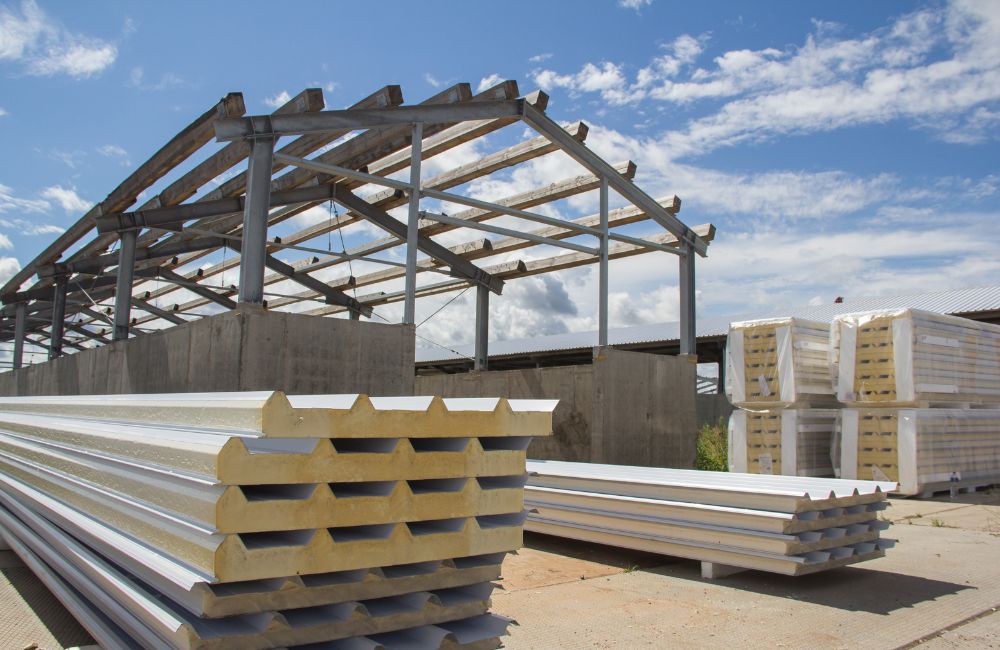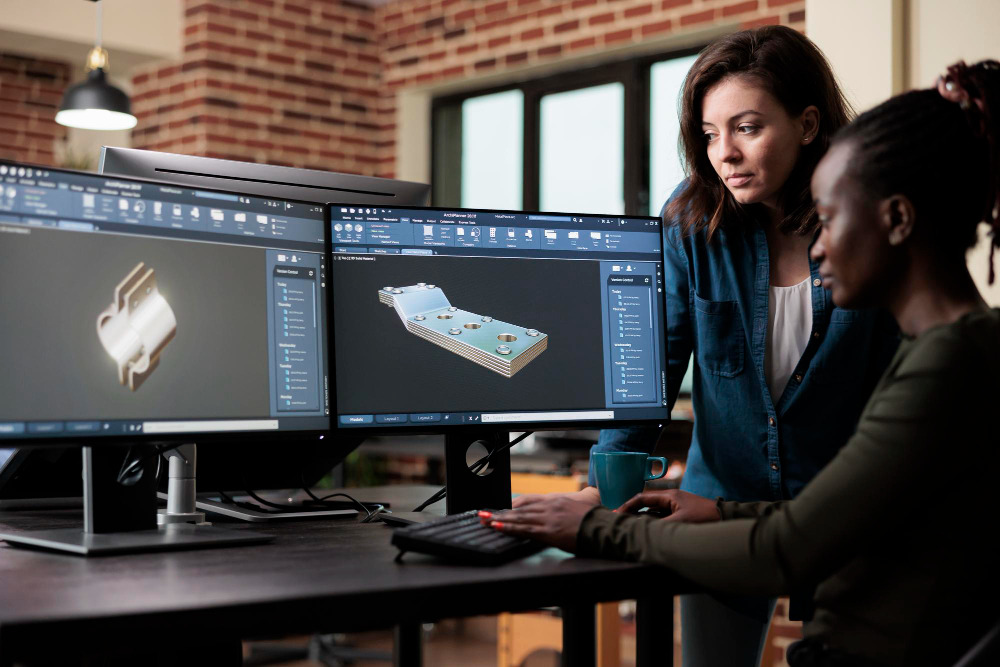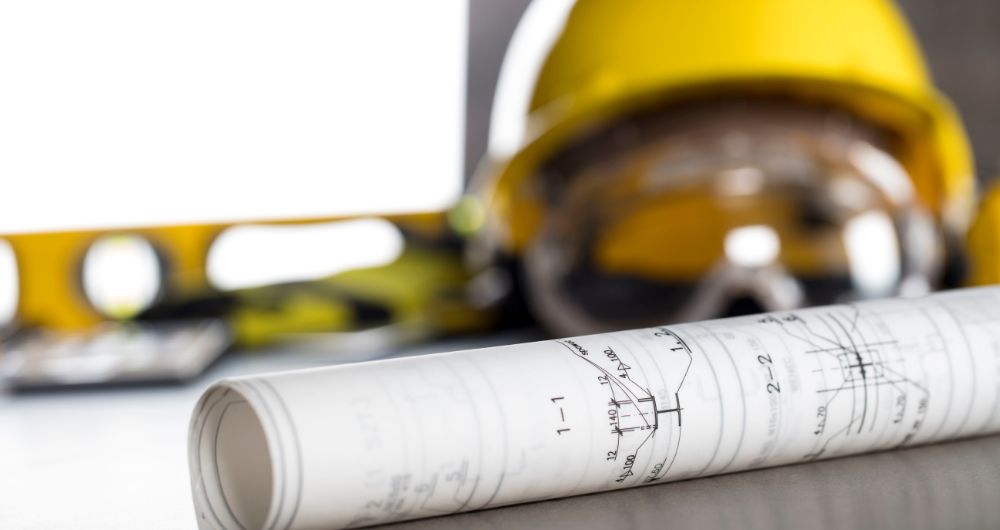What is a General Contractor?
A General Contractor is a professional responsible for overseeing and managing construction projects. They are crucial in coordinating all aspects of construction, from planning and design to execution and completion. General Contractors are typically hired by property owners or developers to ensure that the project is completed on time, within budget, and meets quality standards.

The key responsibilities of a General Contractor include:
✔ Project Planning: Collaborates with architects, engineers, and other stakeholders to develop a comprehensive plan for the construction project.
✔ Budgeting and Cost Estimation: Estimates the project's overall cost, including materials, labor, and other expenses. The General Contractor is often involved in budgeting and cost control throughout the project.
✔ Subcontractor Management: Hires and manages subcontractors, who specialize in specific aspects of construction such as plumbing, electrical work, or roofing.

✔ Scheduling: Develops and maintains a project schedule to ensure that work is completed in a timely manner. This involves coordinating the activities of various subcontractors and ensuring that they work together efficiently.
✔ Quality Control: Monitors and ensures that the work performed meets the required quality standards and adheres to the specifications outlined in the project plans.
✔ Permitting and Regulatory Compliance: Ensures that all necessary permits and approvals are obtained and that the construction project complies with local building codes and regulations.

✔ Risk Management: Identifies and manages risks that may arise during construction, and implements strategies to mitigate these risks.
✔ Communication: Facilitates communication between all parties involved in the project, including the client, architects, subcontractors, and suppliers.
Responsibilities of a General Contractor
Pre-Construction
In the initial stage of the process, general contractors set and manage the construction budget. They also select suitable subcontractors for various project segments, introduce them to the project, and communicate with architects to ensure everything is proceeding correctly. While some contractors may take on additional tasks, these are the fundamental duties they perform at the beginning of a project.
During Construction
During the construction phase, the general contractor manages every part of the project, ensures the work stays on schedule, and resolves any issues. In this phase, the general contractor must ensure smooth operations, which depends heavily on the effectiveness of earlier project planning and the proper briefing of subcontractors.
Post-Construction
After completing a project, a dedicated general contractor ensures a smooth transition to the post-construction phase. Their responsibilities encompass the meticulous collection of all necessary waivers, guaranteeing that every worker involved in the project receives their rightful payment, and adeptly resolving any payment-related issues that may arise. For those seeking a general contractor equipped with the expertise and resources to navigate the intricacies of construction phases, we recommend contacting Claris Design•Build.
Types of General Contractors
General contractors span various specialized roles, from excavation and plumbing to HVAC, electricians, and painters. However, to simplify their roles, responsibilities, and contributions to the construction and maintenance sector, they mainly fall into two categories: traditional and design-build contractors.
Traditional Contractors
Traditional general contractors ensure that a construction project follows the set plan. Their role doesn't include designing or planning the building; they are responsible for carrying out the plans and designs created by architects or designers. Typically, these professionals prepare the project plan, and then various general contractors bid for the chance to execute it.
The traditional way of getting a construction project involves design, bidding, and building. Here, the project owner deals separately with a design firm (like an architect or interior designer) and a building contractor. First, the owner hires a design firm to create detailed design plans. Then, the owner asks for bids from different contractors to do the work outlined in these plans and usually picks the most cost-effective and efficient contractor.
Design-Build Contractors
Design and Build provides a one-stop service, combining design, planning, consulting, project management, and construction all in one place. This method, also known as D&B, makes projects like moving or refurbishing faster and more cost-effective. In this approach, the project owner hires just one company to handle designing and building the project, all under one contract, simplifying the process.
2024 General Contractor Licensing Requirements
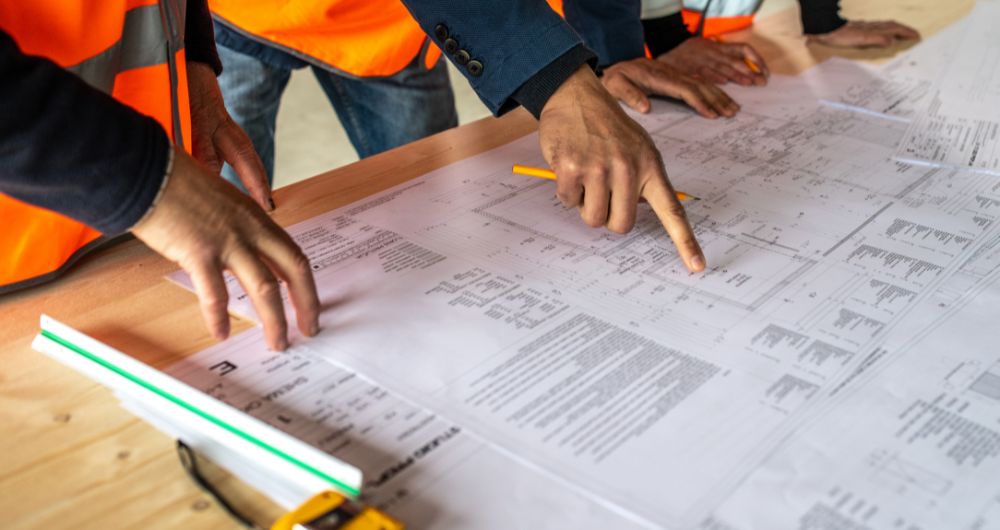
The requirements for a general contractor's license vary across states. Generally, contractors must meet specific education and experience criteria. They may need to pass exams on trade knowledge and business management. The process often includes applying and paying fees for the license, which might require renewal. Additionally, general contractor insurance, like general liability insurance and workers' compensation, is crucial for financial protection and may be mandatory for some projects.
These requirements can also vary by state. For example, California has four contractor license types, each with prerequisites like years of experience, exams, a background check, insurance, and bond requirements. Florida offers licenses for different levels of construction work, each needing work experience, exams, financial stability proof, and insurance. Georgia's licenses vary based on the project type and size, with insurance, exams, and continuing education requirements.
While a state-wide general contractor's license isn't mandatory in Texas, specific licenses are required for trades like plumbing, electrical, and HVAC, involving on-the-job training, exams, and registration with relevant state boards. That said, it’s essential to read the local rules and regulations.
Qualities of a Good Contractor
Communication Skills
A skilled contractor needs excellent communication skills to successfully manage interactions with clients, workers, and suppliers. Being transparent and precise in communication helps avoid confusion and mistakes by ensuring everyone is on the same page about the project's details and schedule. Plus, good communication builds trust with clients and the team, which is vital for a project's success and for getting future work.
Experienced
Successful contractors need experience because it gives them the knowledge to handle different construction projects effectively. With experience, they can anticipate and solve problems quickly, ensuring the project runs smoothly. Also, experienced contractors are more likely to deliver quality work that meets clients' expectations.
Flexible

Construction projects often face unexpected changes or challenges. Adaptability allows them to adjust plans quickly and find solutions when problems arise. This flexibility ensures the project stays on track and is completed successfully, even when things don't go as initially planned.
Positive Customer Service
A good contractor must provide positive customer service to build a strong reputation and client trust. Good customer service involves listening to clients' needs, addressing their concerns, and ensuring their satisfaction with the project. Happy clients are more likely to recommend the contractor to others, leading to more business opportunities.
Bidding Process for General Contractors
1. Inviting Bids
Owners start by inviting bids, often through an Invitation for Bid (IFB), Request for Quote (RFQ), or Request for Proposal (RFP). Public projects require an open invitation, while private projects might limit the invitees. The bid package includes project details like construction specs, contract type, and insurance needs, which helps contractors understand the project and decide if they want to bid.
2. Submitting the Bid
Contractors interested in the project submit their bids, outlining the project timeline, costs, and details about their business. This includes getting quotes from subcontractors for specialized work. Contractors estimate labor, materials, and other expenses to offer a competitive price. A bid bond might be required to guarantee the bid.
3. Choosing the Best Bid
Owners compare bids, often looking for the lowest price, especially in public projects. For commercial projects, factors like experience and safety record also matter. Bid leveling helps compare different bids fairly. Contractors aim to offer a price that's both profitable and competitive.
4. Forming the Contract

Once a bid is selected, the contractor and owner negotiate the construction contract, discussing terms and final pricing. Contractors have a chance to suggest changes to standard contracts. It’s crucial for contractors to thoroughly review and agree with the contract before signing.
5. Project Delivery Methods
The method chosen for project delivery affects how bids are handled. Options include Design-Bid-Build, Design-Build, Construction Manager at Risk, and Integrated Project Delivery (IPD). This choice influences the bidding process and the subsequent contract negotiations, impacting how general contractors approach the bid.
Types of Construction Bidding Methods
- Open Tendering: Open to all, this method is widely used for government projects. It encourages high competition and often leads to lower prices. Public projects typically require this method to invite a wide range of contractors.
- Negotiated Tendering: The owner picks a specific contractor and directly negotiates the contract. Best for specialized projects, this approach can be seen as less competitive.
- Selective Tendering: A mix of open and negotiated methods. Only a pre-chosen group of contractors is invited to bid, balancing competition with a streamlined process.
- Serial Tendering: Ideal for ongoing, similar projects, like a series of houses in a development. It simplifies the bid process but may reduce competition.
Starting a Construction Project? Let's Talk!
At Claris Design•Build, we specialize in bringing your ideas to life with top-notch expertise and attention to detail. Our experienced team is dedicated to guiding you through every project phase, ensuring that it's completed on time, safely, and precisely as you envisioned. We pride ourselves on smooth, hassle-free management and stellar results.



